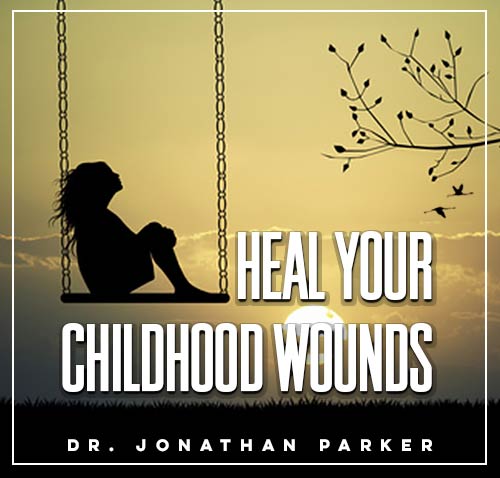Abandonment Wound Recovery: Find Inner Peace

Looking for more amazing products? Check out our online store and explore our collection here! Happy shopping!
Before diving in, please note: This post is for informational purposes only. If you’d like to know more about how we approach topics, feel free to check out our friendly Disclaimer Page.
Hey there, amazing readers! 
We’re committed to delivering quality posts, and your support (even just sticking around despite the ads) means everything to us. So, bear with us, and thanks for helping us keep the good vibes rolling. Now, on to the fun stuff!
TRANSLATE BUTTON AT THE END OF THE ARTICLE
A Quick Overview
Abandonment wounds are deep emotional scars that result from feeling rejected, unloved, or unwanted by someone significant in our lives.
These wounds can stem from childhood experiences, such as parental neglect or abandonment, or from adult relationships that end abruptly or unexpectedly.
Abandonment wounds can impact our mental health, self-esteem, and ability to form healthy relationships.
Addressing these wounds is crucial for finding inner peace and healing from past traumas.
Understanding Abandonment Wounds
Abandonment wounds are emotional injuries that occur when we feel abandoned or rejected by someone we deeply care about.
These wounds can manifest as feelings of unworthiness, insecurity, and fear of abandonment in future relationships.
Abandonment wounds are often rooted in childhood experiences, where caregivers were emotionally unavailable or physically absent.
These early experiences shape our attachment styles and influence how we relate to others throughout our lives.
Impact of Abandonment on Mental Health
Abandonment wounds can have a profound impact on our mental health and well-being.
Individuals with abandonment wounds may struggle with anxiety, depression, low self-esteem, and difficulty forming and maintaining healthy relationships.
These wounds can also lead to patterns of self-sabotage, fear of intimacy, and a constant need for reassurance and validation from others.
Addressing abandonment wounds is essential for improving mental health and achieving inner peace.
Signs and Symptoms of Abandonment Wounds
Recognizing the signs and symptoms of abandonment wounds is the first step towards healing and recovery.
Some common signs of abandonment wounds include:
Fear of rejection or abandonment
Difficulty trusting others
Low self-esteem and self-worth
Intense fear of being alone
Feelings of emptiness and loneliness
Avoidance of emotional intimacy
People-pleasing behaviors
Chronic feelings of sadness or depression
Difficulty setting boundaries in relationships
If you identify with any of these symptoms, it may be a sign that you are struggling with abandonment wounds that require attention and healing.
Importance of Addressing Abandonment Trauma
Addressing abandonment trauma is crucial for breaking free from destructive patterns and achieving emotional healing.
Ignoring or suppressing abandonment wounds can lead to prolonged emotional suffering, difficulty in forming healthy relationships, and ongoing feelings of insecurity and unworthiness.
By acknowledging and addressing these wounds, individuals can begin the process of healing, self-discovery, and finding inner peace.
Healing Strategies for Abandonment Wounds
Healing abandonment wounds requires a combination of self-reflection, therapy, and self-care practices.
Some effective healing strategies include:
Discover "SUPERFOODS: The Key to Health and Balance
"
Journaling to process emotions and gain insight into past experiences
Seeking therapy to explore and address underlying abandonment wounds
Practicing self-compassion and self-care routines
Engaging in activities that bring joy and fulfillment
Building a support network of trusted friends and family members
Setting boundaries in relationships to protect emotional well-being
Learning healthy coping mechanisms for managing emotional triggers
Practicing mindfulness and grounding techniques to stay present and calm
By incorporating these healing strategies into daily life, individuals can begin the journey towards healing from abandonment wounds and finding inner peace.
Seeking Professional Help for Recovery
Seeking professional help from a therapist or counselor is essential for addressing deep-seated abandonment wounds and trauma.
A trained mental health professional can provide a safe space for individuals to explore their emotions, process past experiences, and develop coping strategies for healing.
Therapy can help individuals gain insight into their attachment style, communication patterns, and behavior in relationships, leading to greater self-awareness and personal growth.
Building Healthy Relationships Post-Abandonment
Building healthy relationships post-abandonment requires self-awareness, communication skills, and the ability to set boundaries.
It is essential to recognize and address any lingering abandonment wounds that may affect current relationships.
By fostering open communication, mutual respect, and emotional intimacy, individuals can cultivate healthy, supportive relationships based on trust, understanding, and compassion.
Cultivating Self-Compassion and Self-Acceptance
Cultivating self-compassion and self-acceptance is vital for healing abandonment wounds and developing a positive self-image.
Practicing self-compassion involves treating oneself with kindness, understanding, and forgiveness, especially in moments of self-doubt or insecurity.
By embracing self-acceptance, individuals can learn to love and appreciate themselves unconditionally, regardless of past experiences or perceived flaws.
Practicing Mindfulness and Grounding Techniques
Practicing mindfulness and grounding techniques can help individuals stay present, calm, and centered amidst feelings of anxiety or distress.
Mindfulness involves being aware of one’s thoughts, emotions, and sensations without judgment, allowing for a greater sense of clarity and peace.
Grounding techniques, such as deep breathing, visualization, or physical exercises, can help individuals feel more connected to their bodies and surroundings, reducing feelings of disconnection and emotional overwhelm.
Finding Inner Peace Through Healing
Finding inner peace through healing from abandonment wounds involves embracing vulnerability, self-discovery, and emotional growth.
By acknowledging and processing past traumas, individuals can release pent-up emotions, forgive themselves and others, and cultivate a sense of peace and acceptance within.
Inner peace comes from within, through self-awareness, self-compassion, and the willingness to confront and heal old wounds with courage and resilience.
Overcoming Fear of Abandonment
Overcoming the fear of abandonment requires challenging negative beliefs, building self-confidence, and practicing healthy relationship skills.
It is essential to recognize that fear of abandonment is often rooted in past experiences and does not define one’s worth or value as a person.
By working through abandonment wounds with therapy, self-reflection, and self-care, individuals can gradually reduce their fear and anxiety around abandonment, leading to greater emotional security and inner peace.
Embracing Growth and Transformation from Wounds
Embracing growth and transformation from abandonment wounds involves viewing past traumas as opportunities for personal development and resilience.
By reframing abandonment wounds as lessons learned, individuals can extract wisdom, strength, and courage from their experiences, leading to greater self-awareness, empathy, and compassion for themselves and others.
Embracing growth from wounds allows individuals to turn pain into power, vulnerability into strength, and wounds into wisdom, ultimately leading to a more fulfilling and purposeful life.
Conclusion
Abandonment wounds can have a profound impact on mental health, self-esteem, and relationships, but they can be healed with self-awareness, therapy, and self-care practices.
By addressing abandonment wounds, individuals can find inner peace, cultivate self-compassion, and develop healthier relationships based on trust and mutual respect.
Embracing growth and transformation from wounds allows individuals to turn past traumas into sources of strength, wisdom, and resilience, leading to a more fulfilling and empowered life.
Healing from abandonment wounds is a journey of self-discovery, courage, and healing that ultimately leads to a greater sense of peace, wholeness, and well-being.
Discover "Sports Nutrition: The Importance of Nutrition and Exercise for Overall Health
"

The Enlightenment Journey is a remarkable collection of writings authored by a distinguished group of experts in the fields of spirituality, new age, and esoteric knowledge.
This anthology features a diverse assembly of well-experienced authors who bring their profound insights and credible perspectives to the forefront.
Each contributor possesses a wealth of knowledge and wisdom, making them authorities in their respective domains.
Together, they offer readers a transformative journey into the realms of spiritual growth, self-discovery, and esoteric enlightenment.
The Enlightenment Journey is a testament to the collective expertise of these luminaries, providing readers with a rich tapestry of ideas and information to illuminate their spiritual path.
Our Diverse Expertise
While our primary focus is on spirituality and esotericism, we are equally passionate about exploring a wide range of other topics and niches 

To ensure we provide the most accurate and valuable insights, we collaborate with trusted experts in their respective domains 
Our blog originally focused on spirituality and metaphysics, but we’ve since expanded to cover a wide range of niches. Don’t worry—we continue to publish a lot of articles on spirituality! Frequently visit our blog to explore our diverse content and stay tuned for more insightful reads.
Hey there, amazing reader! 
Check out our store here and take a peek at some of our featured products below! Thanks for being awesome!
















